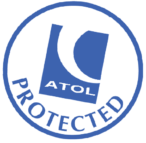Capital: Kingstown
Time zone: GMT – 4
Telephone services: Country Code: 1 809 Outgoing Code: 0
Emergency telephone numbers: All services – 999
Tourist information: St Vincent and the Grenadines Department of Tourism, PO Box 834, Bay Street, Kingstown, St Vincent Tel: 457 1502 Fax: 456 2610.
Passport information: Valid passport required by all except: Nationals of the UK holding a driver’s licence or birth certificate. Nationals of the USA and Canada holding a driver’s licence, birth certificate or voter’s registration card. Nationals of France holding a national ID card. Return Ticket required. Requirements may be subject to short-term change. Contact embassy before departure.
Visa information: Not required length of stay decided by immigration authority on arrival. If necessary check with Consulate or High Commission before finalising travel arrangements.
Health information: Polio, Typhoid: Vaccination recommended
Yellow Fever: A vaccination certificate is required from travellers over 1 year of age coming from infected areas.
Food & drink: Water is untreated and not safe to drink.
Currency: Eastern Caribbean Dollar (EC$) = 100 cents. All major credit cards are widely accepted. All major currencies are accepted in travellers cheques.
ATM availability: Unavailable.
Cost of living: Caters or all types of budget. Accommodation varies from luxury hotels to rugged log cabins in the interior.
Languages: English
Weather: Tropical climate with trade winds cooling the hottest months, which are June and July.
Electricity: 220/240 volts AC, 50 Hz.
Post: Up to 2 weeks.
Transport: SEA: Yacht chartering is easily arranged and one of the bet ways to explore the Grenadines. ROAD: BUS: Services run regularly throughout St Vincent. TAXI: These are shared and charge standard rates (fixed by the government) CAR HIRE: Easily arranged by a number of national and international firms. DOCUMENTATION: A local licence is required and can be obtained on presentation of a local licence at the airport or the police station in Bay Street, Kingstown.
Special information: Good West Indian cuisine is found on St Vincent.

